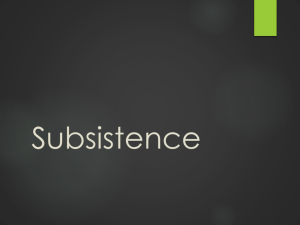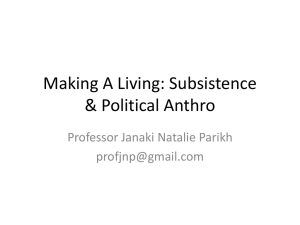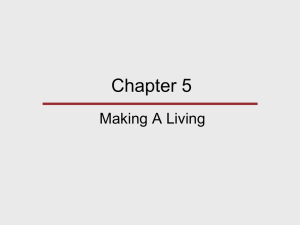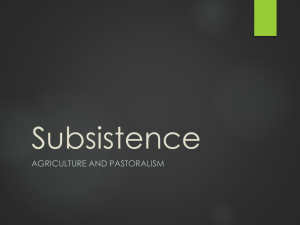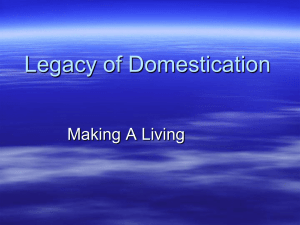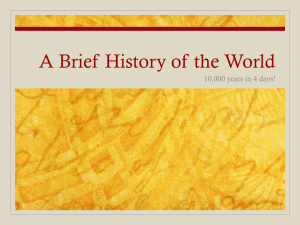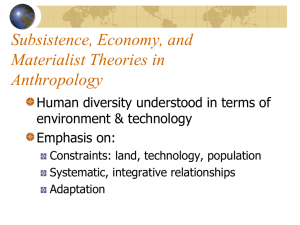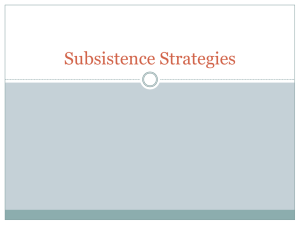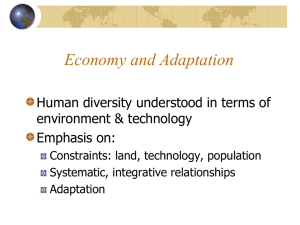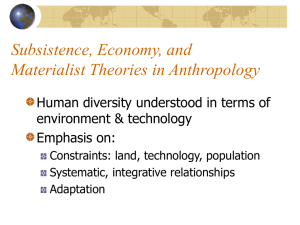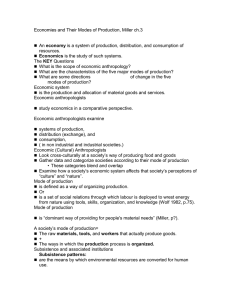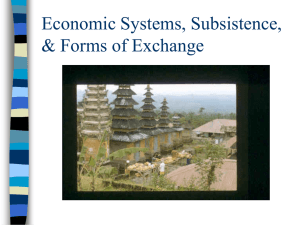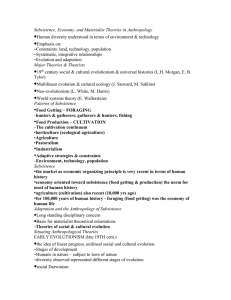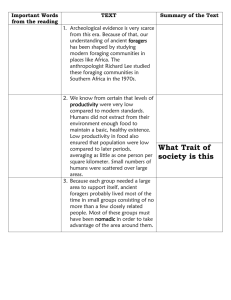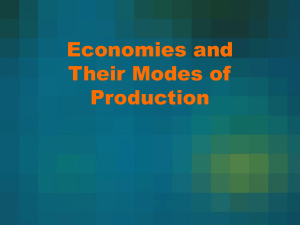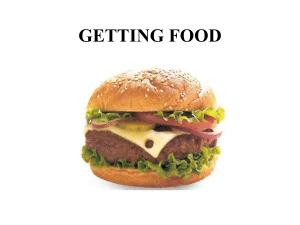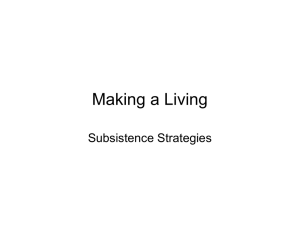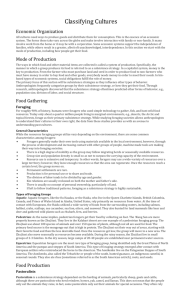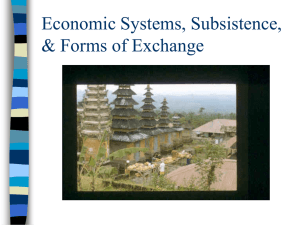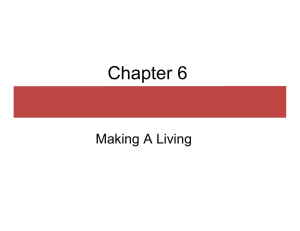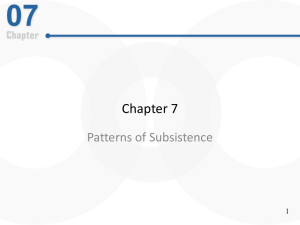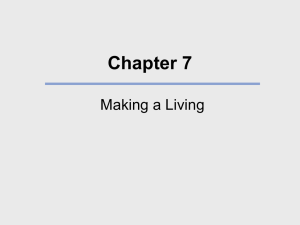what is anthropology?
advertisement
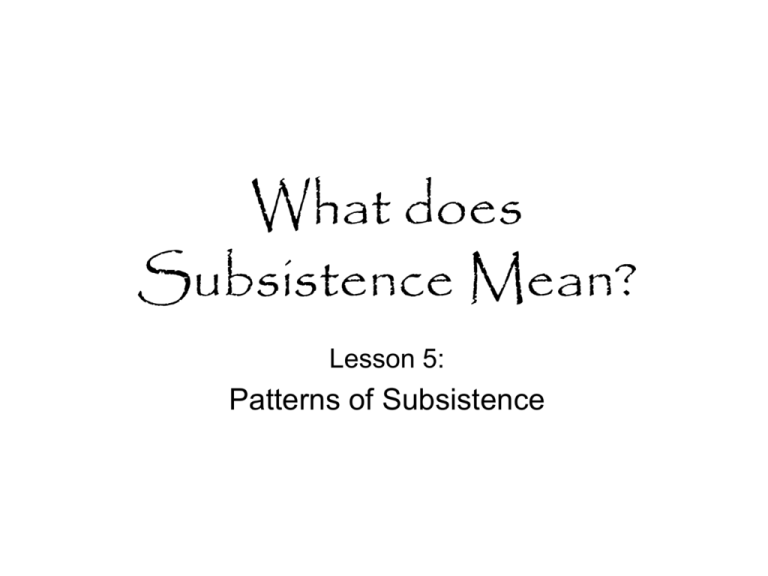
What does Subsistence Mean? Lesson 5: Patterns of Subsistence Ecology • A way of studying the relationship between an organism and the elements in an environment • Darwinian natural selection • Adaption • Biological or Cultural • Humans cannot be studying ecologically like all other biological organisms Patterns of Subsistence • Subsistence • A fancy way of saying how people get their food. • For most of human existence, we got our food using one method, and one method only. • Hunting and Gathering What’s in a Name? • Aside from hunting and gathering, what other methods did these people use to acquire food? • What types of food did they eat? • NOT just nuts and berries • How much of each (percentage) did they eat? • Why “hunter gatherer”? Food Foraging • Less problematic way of labeling these groups • Not one uniform group, instead many different types of food foragers • Very small groups – 30 – 100 people • Linked by kinship and marriage • Nomadic • Must live near food • Move when food is depleted Personal Property • No notion of personal property among food foragers • Food shared amongst the group • Moving constantly • As a result, there is no such thing a poverty among the food foragers • The “original affluent society” A Food Forager’s Job • The food forager’s jobs is to procure food • Division of labor – A specialization of jobs – The more complex the group, the greater the specialization • How often must food foragers work per day in order to acquire enough food? • Do they have time for leisure? The Rise of Domestication • Roughly 15,000 years ago a major climatic change took place as a global warming occurred • This freed up new land, and lead to domestication • When you take a plant or animal and select specific traits to breed • Leads to an organism dependent on humans to reproduce Teosinte and Corn Food Production • The Agricultural Revolution takes hold at roughly 10,000 years ago in multiple places throughout the world. – Sheep, goats, wheat and barley in the Old World – Maize, cassava, and potatoes in the New World • Not all humans abandoned food foraging – Those that did settled in permanent villages – More food = more organisms – Changing ideas about personal property The Birth of Civilization • With food production comes civilization and an economy A Food Horticulture and Agriculture • Horticulture – Hand tools – Gardens – Many different crops • Agriculture – Large Tools – Farms – One or two main crops Slash and Burn Horticulture • Also known as “swidden” • Practiced in places where the soil is not naturally fertile Pastoralism • Herders turn what we can’t eat (grass) into what we can – animals, dairy, blood – Use domesticated animals – Move hundreds of miles per year • Herders are not stuck in the stone ages – Some will use GPS to track the herd – Others, like the Laplanders will use snowmobiles Exam Review Questions • • What does the discipline of ecology study? – What term did we use to refer to “a beneficial adjustment”? – What is different about ecological studies of humans? What does patterns of subsistence mean? – What is the difference between food foraging and food producing? – Can you define horticulture? Pastoralism? Agriculture? • What is swidden? – When did some human populations begin to switch to agriculture? – What is Jared Diamond’s main argument in “Adaptive Failure: Easter’s End”?
